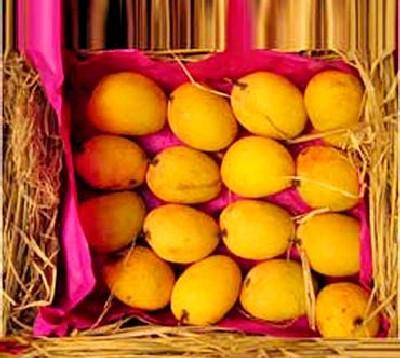
Australia finally gave a green signal to imports of mangoes from India this year, but the king of fruits didn't make it to the market shelves. The initial 1.267 tonnes of mangoes were found to be rotten or over ripe on arrival in Australia and had to be destroyed, resulting in the two importers incurring losses of nearly A$100,000.
New South Wales-based Karma Krop imported 1.3 million tonnes (mt) of mangoes from Bravima Traders Pvt Ltd and Victoria-based Mals Exim Pty Ltd imported 400 kg for sampling from Pujitha Enterprises Imports & Exports, after the successful culmination of the pest risk analysis carried out by the Australian Quarantine and Inspection Service (AQIS).
"We finally managed to get the all-clear in July this year from the AQIS, which has one of the most stringent restrictions in the world. The mangoes were given the AQIS-recommended vapour heat treatment (VHT) at the Saharanpur processing facility, but when my first consignment of 1.5 tonnes arrived by air freight in Melbourne, the mangoes had turned into pulp and the skin had black spots. I had to pay the AQIS A$5,600 for getting the consignment destroyed," Mahesh Shukla of Karma Krop said.
...
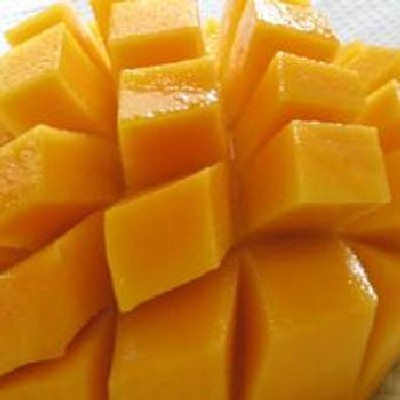
He claimed recurrent power failure and the generator tripping at the facility resulted in the mangoes being treated for a much longer duration.
"VHT and hot water dipping treatment (HWDT) are not ideal for the Uttar Pradesh mango, which has a thin skin and ripen quickly compared to the Australian mango," said Shukla, who graduated as a chemical engineer from Roorkee Engineering College and migrated to Australia 30 years ago.
According to the AQIS, all Indian mangoes must undergo pre-export VHT or HWDT against fruit flies at an approved facility. So being the first time, were there teething problems?
...
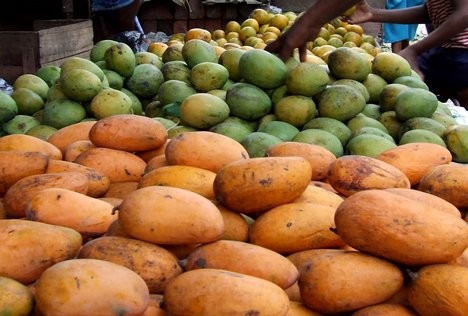
In an email reply, the general manager of the Agricultural and Processed Food Products Export Development Authority, R K Boyal, said, "Everything went according to the plan during the VHT. The mangoes were given VHT at the Saharanpur facility under the joint supervision of the AQIS and the Indian National Plant Protection Organisation (NPPO) inspectors. One consignment had certain problems upon arrival in Australia, though it was sent in good condition after joint inspection and supervision of the AQIS and the NPPO inspectors."
According to Boyal, a pre-operation audit of the Saharanpur treatment facility, which has been in use for mango exports to Japan for the last four years, had already been carried out by the AQIS team.
India produces 54.2 per cent of the world's mangoes and the country's export of mangoes has increased from Rs 127.42 crore (Rs 1.27 billion) in 2007-08 to Rs 170.71 crore (Rs 1.7 billion) in 2008-09.
...
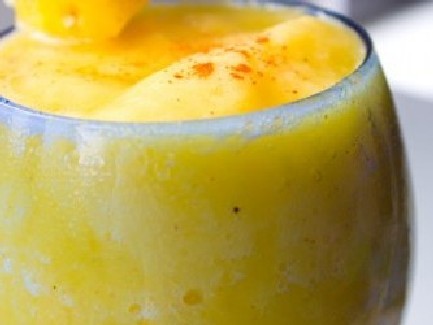
"India is a net exporter of mangoes and around 80,000 tonnes are exported annually. We expect to target at least 100 mt to Australia next year now that all systems for the AQIS requirements are in place," said Boyal.
Prior to 1996, India exported fresh mangoes to Australia with a mandatory on-arrival fumigation treatment using ethylene di-bromide (EDB). But imports of fresh mangoes from India were suspended in 1996 as a result of the global phase-out of the use of EDB.
"I had confirmed orders for 123 tonnes and total estimated orders for 250 tonnes worth A$1 million," said Shukla, who owns Ambikas International, a clothing and accessories company.
He decided to import mangoes during a visit to his hometown Lucknow and established Karma Krop, but his Australian partner ended the partnership following the debacle.
...
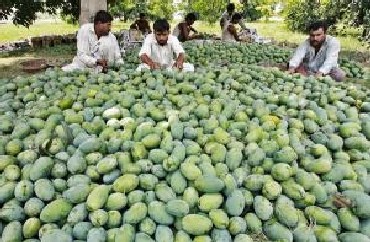
"I have lost A$70,000 in total and 18 months of my time travelling to and from both countries," said Shukla, who has lodged a complaint with the Indian authorities demanding compensation.
For Venkat Raju of Mals Exim Pty Ltd, who imported 400 kg of mangoes on a trial basis, it has been a "bitter experience" too.
He said, "I have lost A$25,000 in this failed venture. We had got excellent response for Indian mangoes from one of the largest fruit marketing companies who supply fruits to major supermarkets and other fruit traders here. We had received solid purchase orders on a weekly basis. Unfortunately, when we received the consignment, the mangoes were over-ripe and started rotting quickly. The only option was to destroy them."
...
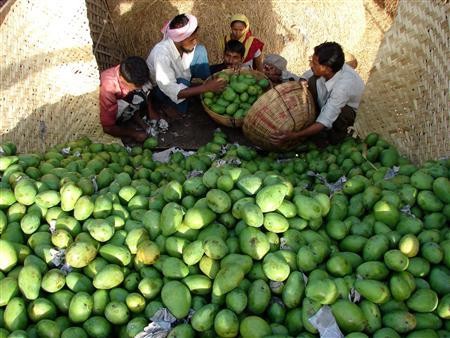
Besides problems with the processing treatment of mangoes, Venkat Raju said, he didn't get the ordered packaging material, the growers increased their prices manifold, the agents didn't keep to their commitment and it all resulted in losing credibility with the buyers here.
"If we can get quality product, there is enormous demand for Indian mangoes and we can do business in high volumes. Based on our buyers' promises, we estimated that the business turnover would have been around 300 tonnes had things gone to plan. For the 2012 season, I plan to take especially made packaging boxes that absorb moisture from Australia," said Raju, who migrated to Australia four years ago from Hyderabad and exports olive oil and milk powder to India.
Currently, Australia only allows import of mangoes sourced from Uttar Pradesh. Orchards, treatment facilities and packing sheds supplying and handling mangoes for Australia have to be registered with India's Department of Agriculture and Cooperation and approved by the Australian Department of Agriculture, Fisheries and Forestry (DAFF).
...

Both importers feel import of Indian mangoes should not be restricted to UP, but they should be allowed to import Alphonso, Banganapalli and other varieties from other states. The export period for UP mangoes - Langra, Dasehari and Chausa - is about 45 days from mid-June to July-end. This year, the first consignment arrived in Australia on August 2.
"While initial volumes of mango imports from India were only 1.267 tonnes, the counter-seasonal nature of mango production in India places Indian producers with an ideal opportunity to access the Australian market," said a DAFF spokesperson.
The two importers feel the irradiation treatment is better suited to the Indian mango and they should be allowed to import into Western Australia (WA). Currently, Indian mangoes can be imported into WA under irradiation condition established under the Biosecurity Australia 2008 Import Risk Analysis Report.
...

The WA Department of Agriculture and Food is undertaking a review of existing import regulations relating to Mango Seed Weevil (Sternochetus mangiferae) that will enable consideration of other conditions for import of mangoes into the state.
Any fresh mango import from India must comply with the AQIS' import conditions, which include importers requiring to have a valid import permit; an original AQIS-endorsed phytosanitary certificate; all consignments treated prior to export having a commercial treatment certificate attached; securely (ie made insect proof) packed in clean, new packaging; and all consignments must be free of live insects, disease symptoms, trash, contaminant seeds, soil and other debris on arrival in Australia.